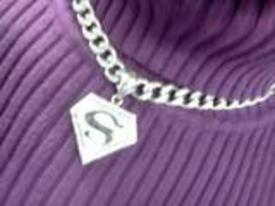READ THIS! Am I Fat? Why Body Fat Percentage Is More Impor
Replies
-
thank you for this post!!!
over the last 2 weeks i have been reassessing my "weight" goal. the crystal clear visuals you posted (of the lovely fitness ladies, not poor nicole) really clicked for me. i realize that my goal weight will not support the "shape" i would like to have. i will be adding pounds back to my target weight and also adjusting my macro nutrients so that i can get closer to the physique i want, not just a number.0 -
I bought a Curves scale that was supposed to analyze body fat. It originally analyzed my body fat at 40%. This was depressing for me, because I had been exercising a lot up to that point.
Still, it got me focusing on strength-training, so I added 3 days of intense strength-training to my exercise regime. After months of working my butt off, plus a calorie-restricted diet high in protein and low in carbs, my body fat on the Curves scale jumped up to 41%.
Eventually, I stopped using it, because it seemed to calculate body fat according to my height and weight (it listed this in the fine print). Now it errors out almost 60% of the time, and gives me the same reading I got from 2 years ago, before I started my weekly exercise rotation of 3 days cardio, 3 days strength.
As a result, I'm skeptical of affordable body fat calculators.0 -
I agree with you, and I wish we all had a better, accurate, and more accesible way to measure our body fat without enrolling in a gym.0
-
great post. THANK YOU SOOOO MUCH FOR POSTING THIS0
-
Great post! I could have been you poster child for it...I'm 5'4" weigh 130# but my body fat % is 18 and I wear a size 2/4.
MFP friends, look out for free health screenings in your area...that's where I got my body fat % checked among other wonderful things.0 -
Love the article! It took me a good while to change my thinking to what you described! Here's my question, though. How in the world do I acurately figure my body fat percentage?
http://www.fitwatch.com/qkcalc/body-fat-percentage-calculator.php
try the above link0 -
Thanks for the article. Good stuff0
-
Yup, weight isn't always the best measurement of fitness. However, if you are obese and not losing weight chances are something is wrong. The simple fact is that it take quite a bit of time to build muscle, so you are not likely gaining enough muscle weight to offset a good nutritional plan. However, water weight can be an issue, particularly when you first start lift weights. When you start lifting for the first time the muscle soaks up water to repair the initial damage done. The more sore you are, the more water you'll be holding. After a few weeks, this water weight should subside. However, increased intake of salt and carbs can also increase water weight.
The bottom line is for the obese, weight loss IS important. If you are 5'5' and weigh 250 and you don't lose weight for a month and are not lifting weights or have been lifting for a while then you probably need to reconsider your diet.
Back in the day when I was an elite wrestler I was 185 pounds at 5'5" and was at about 10-12% BF and had abs. By pretty much every weight range I was nearly obese. So, I would say for lean people (less than 22% for females, less than 15% for males) that this is more of an issue.0 -

This pic says it all! Who do you think weighs more? Who do you think is healthier and has a lower percent body fat! It's pretty clear!0 -
I couldn't agree more with trying to get this message out. In college, I weighed around 250 lbs with about 7% body fat due to my weight lifting and workout regime. I was classified as "clinically obese".0
-
http://www.fitwatch.com/qkcalc/body-fat-percentage-calculator.php
try the above link
Puts me at 28.60% body fat, which I like sooo much better than 41%. I'm a big girl, but I work hard.
I want to believe this is accurate, because it makes me feel as if the hard work is paying off. But I think that 41% is staying with me and making me question whether I did the calculations right, measured correctly, etc.0 -

This pic says it all! Who do you think weighs more? Who do you think is healthier and has a lower percent body fat! It's pretty clear!
Actually, the guy on the left is probably just as low BF as the sprinter on the right. The difference is muscle mass.0 -
great article, thanks for sharing!0
-
great post!0
-
In reality, when you are doing "measurements", you are analyzing your body fat for the most part.
Could you be more specific? Are you saying that your measurements only measure fat? Wouldn't your measurements go down if you were burning muscle as well?
I've noticed my measurements going down even though my weight sometimes doesn't. Since I've upped my weight resistance I'm assuming that's why, but I think I'll go for the caliper test. Thanks for the heads up.0 -
Great post!! I really enjoyed reading it! One question though...I still have fat to lose but have started doing P90X, but I still am not sure about how many calories I should be eating. Do I change it to maintenance and still eat back everything that I burn? I am 5'2" and some days that would be like 2000 calories or more depending on what all I do. Most days I do P90X, walk 2 miles at lunch, and one night a week I have karate. I have the fear of gaining weight if I up my calories, because I do still have some fat to lose. HELP!!
 0
0 -
Why do you have a goal weight, then?
Because i know what my healthy weight is for me and my height and i know what weight i feel best at. Also, this thing i posted is something they post at my work on our Intranet about Wellness and I thought it had a lot of great info that I wanted to share.0 -
Awesome post! I've been working with a trainer to reduce my bodyfat by 11% and I DON'T have a weight loss goal. It's been hard to adjust my mindset to this approach rather then the overly restrictive, have to see movement on the scale mindset! I've been at this for several weeks now and have been eating better (meaning more) and working out regularly and I have managed to drop .5% body fat. It's slow, slow, slow but I know it will all be worth it in the long run. Thanks for posting...it was encouraging to me that I am doing things the right way (this time) on a day when I was feeling a little discouraged!
Yay, i'm so glad this post helped you feel better. 0
0 -
Great post!! I really enjoyed reading it! One question though...I still have fat to lose but have started doing P90X, but I still am not sure about how many calories I should be eating. Do I change it to maintenance and still eat back everything that I burn? I am 5'2" and some days that would be like 2000 calories or more depending on what all I do. Most days I do P90X, walk 2 miles at lunch, and one night a week I have karate. I have the fear of gaining weight if I up my calories, because I do still have some fat to lose. HELP!!

If anyone else has other suggestions or a different answer out there, please chime in. Just from what I know and have read and know first hand, you need to eat about half of your exercise calories but if you have a LOT to eat back because you burned so much, you don't have to eat them all. Just do what feels comfortable to you but make sure you get all your food groups in and especially the ones that help aide in boosting the metabolism such as grapefruit, green tea, yogurt, almonds, coffee, turkey, apples, spinach, beans, Jalapenos, broccoli, oatmeal, soy milk, curry, and cinnamon (http://ecosalon.com/boost-metabolism/). These are excellent choices to keep your diet in kick-start mode and you will lose that fat in no time. You already sound like you're in great shape from what all you do. Good for you.0 -
I already understood the concept so I didn't read the article but the pictures tell the whole story. THank you for that. Some people are so much more visual than others and seeing those will mean a lot to them. Skinny does not always mean healthy or attractive and Nicole is proof of that in that picture. Than goodness she is getting a much healthier body these days.0
-
most people on here are so worried about how to get an accurate reading on body fat %. Really that does not seem to be that important. Just work out, and eat healthy. Make sure to do both cardio and weight training to get the best results. As long as your are building your muscle and NOT just loosing weight then you will be getting healthier and healthier every day. Don't stress over the numbers. Health and fitness and consistancy are what is important0
-
Thanks, I found this really helpfull... I never knew what weight to aim for....now i know there is no magical weight!0
-
bump0
-
Wow!0
-
Interesting article. I'm actually doing a 12 week program through a local hospital with my dietician and at tonights meeting, they will do a composition test to see how much of my weight is fat vs muscle....should be an eye opener.0
-
0
-
I think Kristin Cavallari (from The Hills) is [was] super cute...until she decided to lose 15 pounds...you be the judge, is skinny better?
 0
0 -
tagging this awesome post for future reference0
-
I think Kristin Cavallari (from The Hills) is [was] super cute...until she decided to lose 15 pounds...you be the judge, is skinny better?

she didn't need to lose anything! why did she do that? but deep down i still think she looks good skinny...that's just the crazy mental case in my brain talking.0 -
bumping for myself later0
This discussion has been closed.
Categories
- All Categories
- 1.4M Health, Wellness and Goals
- 398.2K Introduce Yourself
- 44.6K Getting Started
- 261K Health and Weight Loss
- 176.4K Food and Nutrition
- 47.7K Recipes
- 233K Fitness and Exercise
- 462 Sleep, Mindfulness and Overall Wellness
- 6.5K Goal: Maintaining Weight
- 8.7K Goal: Gaining Weight and Body Building
- 153.5K Motivation and Support
- 8.4K Challenges
- 1.4K Debate Club
- 96.5K Chit-Chat
- 2.6K Fun and Games
- 4.7K MyFitnessPal Information
- 16 News and Announcements
- 20 MyFitnessPal Academy
- 1.5K Feature Suggestions and Ideas
- 3.1K MyFitnessPal Tech Support Questions


















